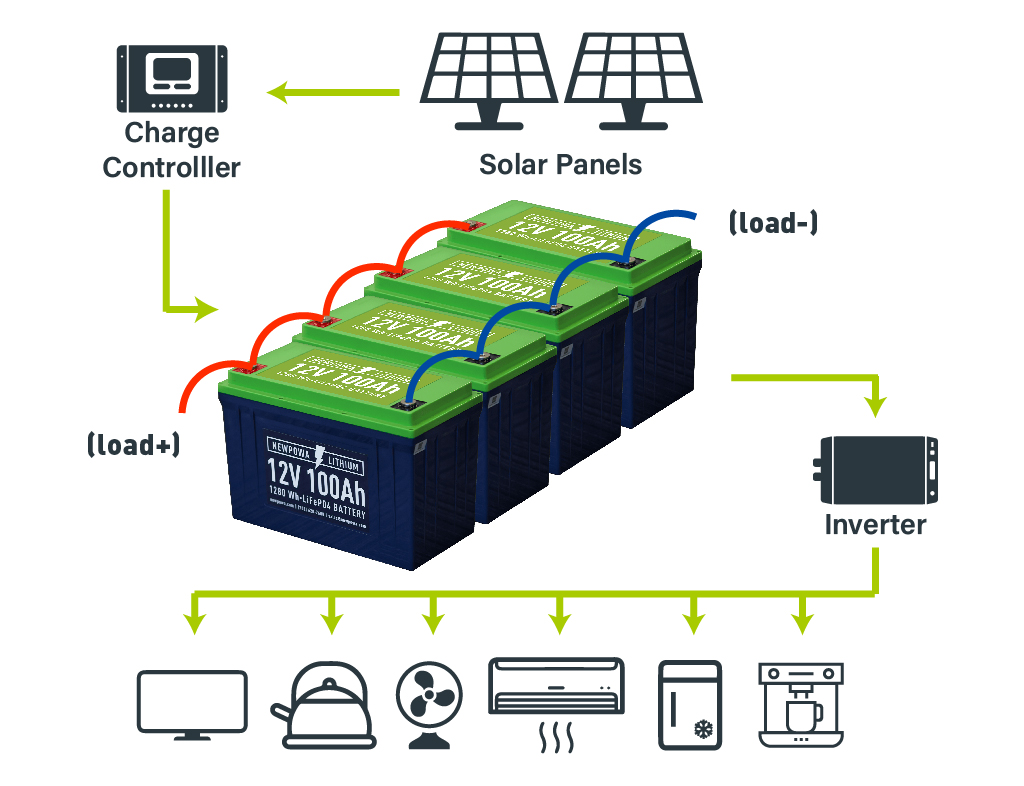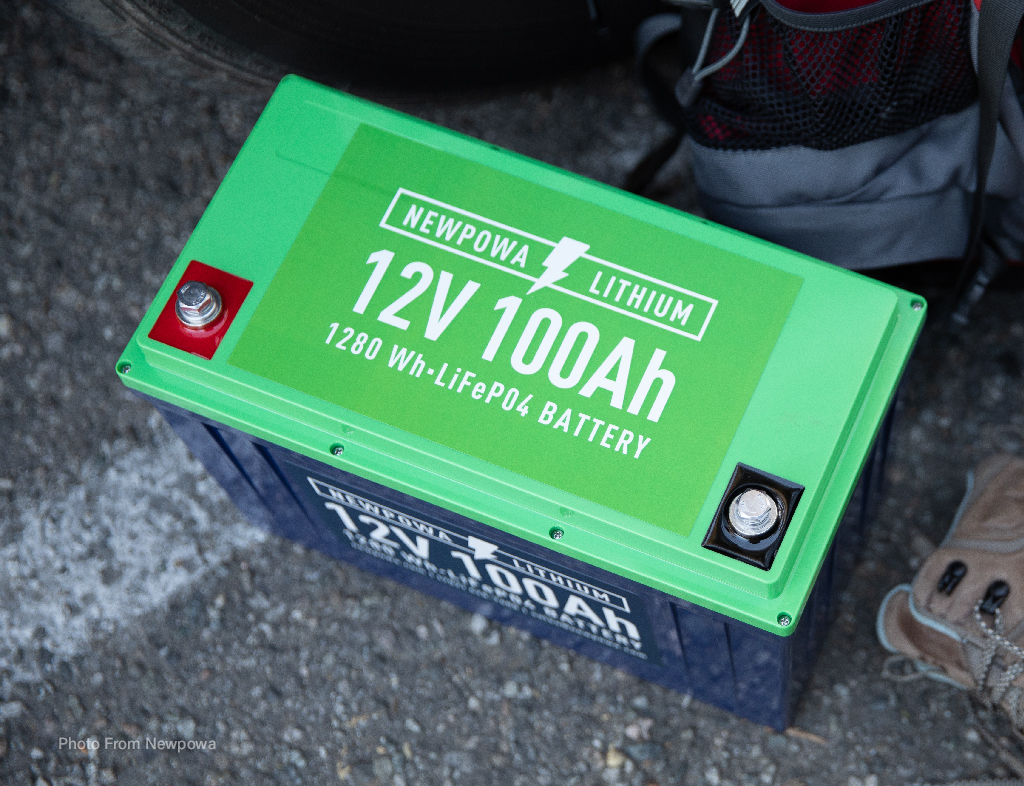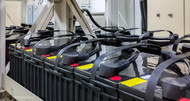THE PROS & CONS OF WIRING YOUR BATTERIES IN SERIES VS. PARALLEL
7th Aug 2023
When it comes to wiring your batteries, there are two common options: series & parallel. Each with its own advantages and disadvantages, so it's important to understand them before deciding.

Series
Wiring your batteries in series means that the positive terminal of one battery is connected to the negative terminal of the next, creating a circuit. The voltage of the batteries doubles, but the amperage or capacity stays the same.
For example, if you wire (2) 12V 100Ah batteries in series, the voltage output will be 24V with the amps remaining at 100Ah.

*before wiring in series, check to make sure your battery accepts series wiring.
Parallel
Wiring your batteries in parallel means that the positive terminals are connected together, and the negative terminals are connected together, creating a battery bank with an increased capacity.
For example, if you wire (2) 12V 100Ah batteries in parallel, the voltage output will still be 12V with the capacity doubling to equal 200Ah.

So, what's the best option for your specific needs? It ultimately depends on the application and how much power you require. A series wired battery bank may be the way to go if you need a high-voltage output. If you need a lot of power over a long period of time, wiring in parallel is likely the better option.
It's also important to note that regardless of how you wire your batteries, it's crucial to properly maintain them to ensure they last as long as possible. This includes regular charging and discharging cycles, avoiding overcharging, and monitoring the voltage and temperature levels. Additionally, the number of batteries wired in series or parallel will depend on the battery and manufacturer. Most lithium batteries are capable of series connections, but not all. So, verify with the battery manufacturer before wiring in series.

Overall, there are pros and cons to both series and parallel wiring when it comes to batteries. It's important to weigh the pros and cons of your specific application to make the best decision for your needs.
